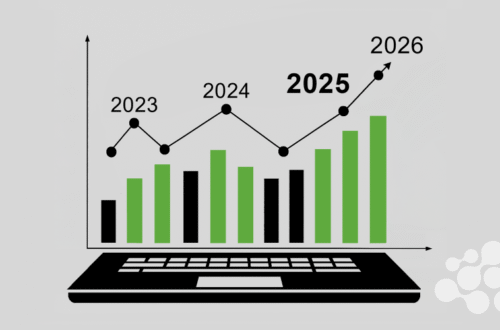If you’ve felt like SEO’s been moving fast lately, you’re not imagining things. The changes we’re seeing in 2025 aren’t just updates or new tools—they’re a complete shift in how search works. Between AI-powered overviews, chat-based search engines, and Google eating its own traffic with zero-click results, it’s easy to feel like you’re constantly playing catch-up.
But here’s the good news: if you understand what’s changing and why, you can adapt. You don’t need to scrap everything. You just need to evolve. So, let’s talk about the seven biggest SEO trends that are shaping the game this year—and what you can do to stay visible.
1. AI Overviews Are Changing the Click Game
Google’s new AI Overviews (previously called SGE) are rolling out everywhere now. Instead of giving you a list of links, search results increasingly start with an AI-generated summary—pulled from sources Google trusts. Users don’t even need to scroll.
That’s a huge shift. For content creators and SEO professionals, the challenge is clear: if you’re not being cited by the AI overview, you’re not in the conversation.
How to Adapt: Focus on clarity, authority, and structure. Write in a way that makes it easy for AI models to extract answers. Bullet points, FAQs, and strong headline formatting help a lot.
2. Zero-Click Searches Are Here to Stay
We’ve been talking about zero-click searches for a few years now, but in 2025, it’s the norm. Whether it’s a featured snippet, a map, or a “People also ask” box, users are finding answers without ever leaving the SERP.
This doesn’t mean SEO is dead. It means the definition of success has shifted. Instead of just chasing traffic, we’re now also chasing visibility and influence.
Pro Tip: If your content answers a question directly and succinctly, you still win—even if users don’t click through. They see your brand. They remember it. And that still matters.
3. Answer Engine Optimization (AEO) Is the New SEO Frontier
If you’ve noticed people saying “AEO” lately and weren’t sure whether it was a typo or a buzzword, you’re not alone.
Answer Engine Optimization is about optimizing your content for AI tools like ChatGPT, Perplexity, and Google’s new AI models. These tools crawl the web to generate full-text answers, not just links.
How to Win: Make your content authoritative, well-cited, and crystal clear. Think long-form guides that go deep, with citations and evidence. Think less fluff, more substance.
4. E-E-A-T Isn’t Optional Anymore
E-E-A-T (Experience, Expertise, Authoritativeness, Trustworthiness) has been part of Google’s quality guidelines for a while. But now, with AI surfacing fewer sources and relying more on quality signals, this framework is absolutely critical.
Implementation Tips: If you’re writing about a topic, show why you’re qualified to talk about it. Link to real credentials. Include author bios. Use real-life examples. The more transparent and grounded your content is, the more trustworthy it becomes—in the eyes of both users and search engines.
5. Conversational and Voice Search Are Growing Quietly But Surely
No, voice search didn’t kill Google. But in 2025, we’re seeing more people use voice in daily search behavior—especially for local queries, product comparisons, and how-to questions.
Optimization Tip: Make your content sound natural. If your blog sounds like a textbook, it probably won’t get picked up in voice search. Think about how people ask questions aloud and mirror that in your headings and answers.
If your content “sounds right” when read aloud, you’re probably on the right track.
6. Structured Data Isn’t Sexy, But It Works
Schema markup rarely gets the spotlight, but it quietly does a ton of heavy lifting.
In 2025, structured data helps your content stand out in SERPs by enabling rich snippets, video previews, star ratings, FAQs, and more. It also helps AI tools understand your page better.
Don’t skip this: Whether you’re writing a recipe, product review, or guide like this one, schema markup makes your content easier to find and more clickable.
7. Video and Visual SEO Are More Than Just “Nice to Have”
If you’ve been delaying video content because it felt too expensive or time-consuming, this is your year to reconsider. Video results are now deeply integrated into both search results and AI overviews.
Google and YouTube (Google’s second search engine) are pushing short, informative videos that answer questions fast.
Action Step: Embed video summaries into your key blog posts. Optimize video titles, use transcripts, and add video schema to boost discoverability.
Final Thoughts
SEO in 2025 feels like a different beast, but at its core, the mission hasn’t changed. You’re still helping people find answers, solve problems, and discover value. What’s changed is the format—and the gatekeepers.
If you’re willing to adapt and put the user first (yes, even when the “user” is a chatbot), you’ll be fine. In fact, you might be ahead of the pack.
Let’s stop obsessing over clicks and start optimizing for clarity, credibility, and usefulness. That’s the SEO that wins now.







